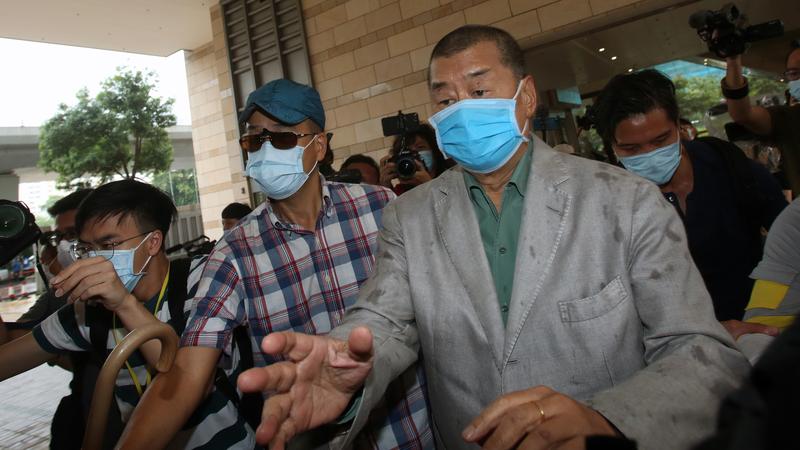Jimmy Lai's release on bail undermines authority of national security law in HKSAR: legal sector
Xinhua | Updated: 2020-12-27 19:26

HONG KONG -- Legal professionals in Hong Kong said that a local court, which granted instigator of Hong Kong riots Jimmy Lai Chee-ying bail, has seriously misunderstood the Law of the People's Republic of China on Safeguarding National Security in the Hong Kong Special Administrative Region (HKSAR) and undermined its authority.
On Dec. 23, Lai, who was suspected of violating the national security law in the HKSAR, was released on bail by High Court of the HKSAR on 10 million Hong Kong dollars (about $1.29 million) and a surety of 300,000 Hong Kong dollars.
Lai's bail does not comply with national security law
People from different sectors in Hong Kong expressed their dissatisfaction with the court's decision. Hong Kong legal professionals pointed out that Lai's release on bail did not comply with the relevant provisions of the national security law in the HKSAR.
Article 42 of the national security law in the HKSAR clearly stipulated that suspects and defendants shall not be granted bail unless the judge has sufficient reasons to believe that they will not continue to commit acts endangering national security.
Senior consultant of Hong Kong Legal Exchange Foundation Gu Minkang said that the judge's understanding of the relevant provisions of national security law in the HKSAR is insufficient. The court imposed many restrictions on Lai's bail, which has proved that one cannot rule out the possibility that he will continue to commit acts against the national security law.
Tony Kan Chung Nin, a member of the National Committee of the Chinese People's Political Consultative Conference, said that the provisions of national security law are very clear, but the judge still approved bail, which was obviously in accordance with the common law principle, rather than with the national security law.
"Turning a blind eye to the national security law is the greatest damage to the authority of the national security law," Kan said.
Barrister Athena Kung said that sabotaging national security is a serious offense and courts should generally be particularly careful when considering granting bail.
Kung said that guarantee conditions that were too loose resulted in a large number of "Hong Kong independence" defendants successfully jumped bail and absconded, and judicial reform needs to be carried out as soon as possible.
























